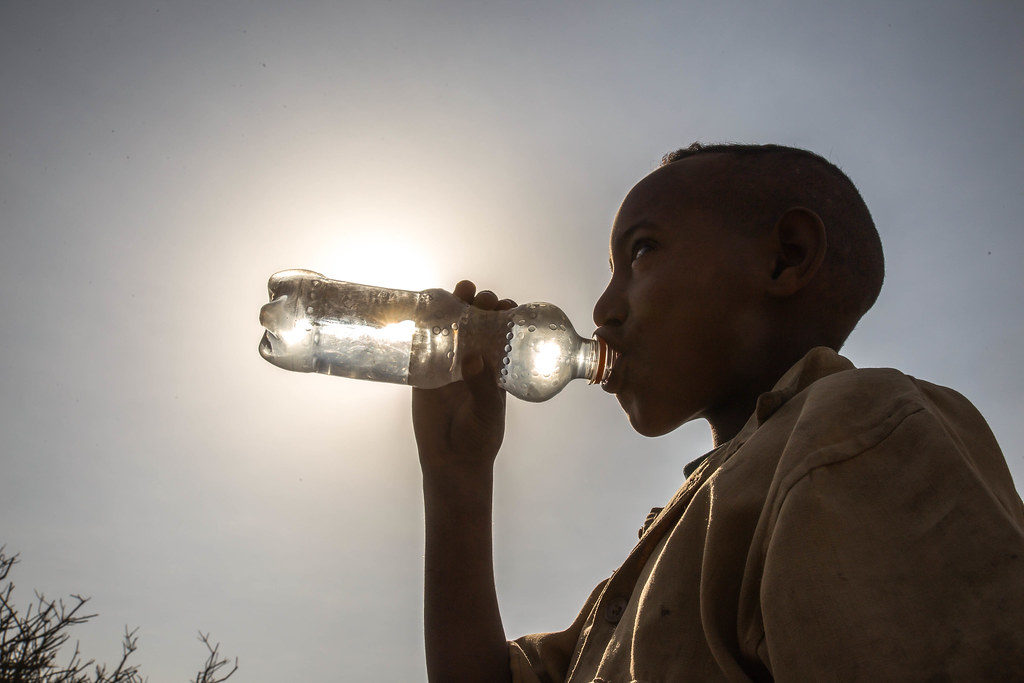Chevron’s Impacts on the Human Right to Water in the Spotlight at Shareholder Meeting

Chevron is one of the world’s largest oil and gas companies, operating in over 180 countries and selling an average of 3.1 million barrels of refined product per day. The company’s operations require excessive amounts of freshwater intake; Chevron extracted 75 million cubic meters (nearly 20 billion gallons) in 2017. Improperly stored toxic wastewater byproduct, leaks or spills from its operations, and extracting limited water resources from water-stressed areas have presented serious risks to the Human Right to Water. Because of these risks, a group of Chevron shareholders are bringing a shareholder resolution on water stewardship before the company for a vote on May 29th and urge all investors to support it.
The Human Right to Water entitles everyone to sufficient, safe, acceptable, physically accessible, and affordable water for personal and domestic use. While Chevron does not have a proactive responsibility to create the right to water, it must ensure that its activities do not interfere with the right. For example, that extraction of freshwater does not exacerbate water conflict, scarcity, or cost. It must manage its wastewater effectively and prevent spills or accidents that put regional water quality at risk. This has been an issue in the past, though. Communities have pointed to Chevron for significant spills in Ecuador, Angola, the United States, and Brazil, as well as water contamination from shale gas exploration in Poland and Romania. These incidents polluted drinking water, led to serious or even fatal illnesses, stalled fishing operations for communities that rely on fishing for income, and even forced communities to relocate. In regions like Central Asia, Chevron extracts water from areas with water scarcity and competition. This may contribute to crop failure, food shortages, high water prices, and violent civil conflict.
This issue is not just theoretical – there are water conflicts playing out as we speak that present risks to communities and Chevron’s business. Amid escalating protests in Nigeria over polluted drinking water and shoreline erosion, where Chevron holds 40% interest in eight concessions throughout the Niger Delta, investors are concerned that Chevron is not respecting the Human Right to Water throughout its operations. Ugborodo community members, who occupy a region between the Escravos River and the Atlantic Ocean, have been host to Chevron facilities for years, and claim that the company has been neglecting water-related issues. The state government got involved last month after a fire at an offshore wellhead raged for more than seven days without sufficient company response, consuming expanses of land and marine wildlife, burning crops, and sending residents fleeing.
As protests in Nigeria continue to intensify, shareholders recognize that this is not only a human rights concern, but a financial risk to the company. Repeated incidents of fines, lawsuits, and community opposition demonstrate that Chevron has not been effectively managing these risks, especially amid increasing water scarcity. In response to these controversies, and after years of engagement with the company, a group of religious investors led by the Sisters of St. Francis of Philadelphia and the American Baptist Home Mission Society filed a shareholder resolution at Chevron. The resolution calls on Chevron to disclose how it is identifying and addressing risks related to the Human Right to Water throughout its operations, and would encourage meaningful engagement with impacted stakeholders like the communities in Nigeria. Shareholder resolutions are non-binding recommendations that are presented and voted upon at a company’s annual meeting, and they often focus on issues related to the impacts risks of the companies business on society and its responsibilities. Religious investors have historically used shareholder resolutions as a mechanism to educate investors about emerging environmental, social, or governance (ESG) risks and urge companies to manage their human rights obligations more effectively.
Chevron investors will vote on the Shareholder Proposal on the Human Right to Water at the company’s annual meeting on May 29, 2019. Major proxy advisory service ISS has recommended a vote for this resolution. The filers of the resolution believe support is warranted and can be helpful for Chevron because:
- Chevron has a responsibility to identify, prevent, mitigate, and account for the actual and potential impacts of its business on the Human Right to Water;
- Chevron’s business operations have negatively impacted the Human Right to Water;
- Chevron’s existing policies, processes, and disclosures are not enough; and
- Failing to manage the Human Right to Water has had negative financial and reputational impacts on Chevron.
Despite lack of disclosure from the company, grassroots organizing from stakeholders like the Ugborodo community prove that Chevron’s business operations have negative impacts on communities and their right to water. Chevron does not disclose relevant data on water, and scored only a 28.8 out of 100 in the Corporate Human Rights Benchmark, receiving 0 points on indicators including: respecting the right to water, action to prevent water and sanitation risks, and water targets considering local factors. Given the importance of water to Chevron’s business, with the Sustainability Accounting Standards Board (SASB) identifying water as material to the industry, these impacts are not only concerning from a social justice perspective, but could represent a serious financial risk. Shareholders would benefit from better management of water resources and transparency with community relations, especially as Chevron plans to surge production in the Permian Basin by 2024.
The full text of the shareholder resolution is available here and the exempt solicitation with the rationale for investor support is available here. This gives further detail on the risks to the Human Right to Water from Chevron’s business, fines and controversies that the company has faced, and what respect for the Human Right to Water means in practice for an integrated oil and gas company.
The Sisters of St. Francis of Philadelphia, the American Baptist Home Mission Society, and 16 co-filers urge all Chevron shareholders to vote for the Shareholder Proposal on the Human Right to Water, Item 4, at the Chevron Corp. Annual Meeting on May 29, 2019.
Chevron Human Right to Water Proxy Memo

